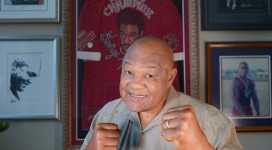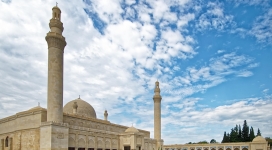On National Prayer Breakfast day in early February, President Donald Trump repeated a pledge he had made several times on the campaign trail that echoed the 2016 Republican Party Platform:
"I will get rid of, and totally destroy, the Johnson Amendment and allow our representatives of faith to speak freely and without fear of retribution."
He was talking about a small part of the tax code that requires organizations that are both tax-exempt and able to receive tax-deductible contributions to stay away from political campaigns.
Often called the Johnson Amendment, this law covers churches, mosques and synagogues, as well as other charitable, religious, educational and scientific organizations.
Almost 90 percent of Protestant pastors and 80 percent of parishioners agree that churches should stay out of politics. But the truth is many moral issues are deeply political.
I'm the author of "Nonprofit Law: the Life Cycle of a Nonprofit" and a professor in the School of Public Policy at UMass Amherst. From my perspective, a bigger question is how far are pastors and other leaders of houses of worship muzzled under the current law?
Here's a detailed look at what pastors and other leaders of houses of worship can and cannot say under the Johnson Amendment.
Rules for tax exemption
First, let's look at what the Johnson Amendment prohibits.

President Lyndon B. Johnson in a White House corridor, Washington on July 17, 1965, with guests author John Steinbeck, left, and evangelist Billy Graham. AP Photo/Charles Gorry
Tax-exempt churches and their staff cannot endorse or oppose political candidates, even indirectly. So, if a church wishes to retain its tax-exempt status and be able to accept tax-deductible donations, pastors are required to refrain from supporting any candidate.
That means the church cannot make political donations, invite one candidate to speak or use its facilities without the others, or compare a candidate's positions to the church's.
In fact, anything that suggests the church prefers a candidate or party can, at least theoretically, endanger the church's tax exemption.
There is room for speaking out
And yet, churches and their leaders can speak out in a variety of ways that could reflect their religious views.

Pastor Ned Allyn Parker addresses the guests at a same-sex group wedding ceremony at the First Baptist Church in Seattle, Washington, Dec. 9, 2012. Jordan Stead/Reuters
For example, pastors can bring their religious knowledge to the moral issues of the day and discuss public policy issues, such as abortion, poverty and homosexuality from the pulpit. As the Supreme Court has said,
"Adherents of particular faiths and individual churches frequently take strong positions on public issues... . Of course, churches as much as secular bodies and private citizens have that right."
So, houses of worship can also conduct educational meetings; they can inform candidates of their positions on issues, and criticize or praise the actions of an elected official.
Thus, even though President Trump has already filed for reelection, churches can speak out on his policies as long as they do not indicate their preference for the 2020 election.
Pastors are also free to endorse candidates if they do so as private citizens: that is, not speak from the actual building of the church, making clear their independence from their church role. In 2016 Robert Jeffress, the pastor of a Dallas megachurch, endorsed Donald Trump, and Pastor Cynthia Hale prayed for Hillary Clinton to become president.
In fact, approximately 44 percent of Protestant pastors acknowledged endorsing candidates in their own capacity in 2016.
Many other choices
Another way in which pastors can engage with citizens is through voter education. What this means is that churches can encourage voter registration, drive people to the polls, and prepare nonpartisan voters' guides and forums.
For example, the United Church of Christ has an Our Faith, Our Vote campaign to encourage participation in the electoral process.

Barack Obama sings Tami Chappell/Reuters
In addition, the law says that churches can lobby their legislators, provided that lobbying is not a "substantial part" of their activities. Neither Congress nor the IRS has explained exactly what "substantial" means in the context of a church.
The Catholic Church, Mormon Church and Church of Scientology have all been in the news recently for lobbying.
Religious leaders can also speak for or against a judicial nominee and express an opinion on a ballot measure, referendum or constitutional amendment.
Neither judges nor measures are "candidates for public office," and therefore they are not covered by the Johnson Amendment.
Religious houses comply with the law as long as they invite all major candidates to speak, even if only one candidate appears, as long as the candidates are invited to events with approximately the same attendance. For example, Senator Ted Cruz announced his 2016 candidacy for president at Liberty University, a Christian university, which critics claimed violated the Johnson Amendment. But Bernie Sanders also spoke there.
A church can also invite a candidate in a capacity other than being a candidate. Thus, the United Church of Christ did not violate the Johnson Amendment when it invited Barack Obama to speak about his faith journey.
The Johnson Amendment does not prevent churches from speaking out politically if they are willing to forego their tax exemption. Mike Huckabee is among the leaders who has suggested they take this route.
Who has been penalized?
Indeed, the law clearly states that if a church violates the Johnson Amendment, it can lose its tax exemption and it can be forced to pay an excise tax on its political expenditures. But this almost never happens. The IRS does not disclose its investigations or its settlements with taxpayers, so we do not know exactly what they are investigating unless the taxpayer makes a public announcement or there is a court case.
As far as we know, however, only one church has ever lost its exemption for violating the Johnson Amendment. In 2000 the D.C. Circuit affirmed an IRS decision to revoke the tax-exempt status of the Church of Pierce Creek after it published full-page ads in two major newspapers opposing presidential candidate Bill Clinton.
We know that the IRS attempted to impose a tax on a Catholic organization in 2004 that had criticized presidential candidate John Kerry and attempted to investigate a Christian organization that endorsed Michele Bachmann for president in 2009, but it changed its mind in the first situation and a court prevented the second on procedural grounds.

Donald Trump attends a church service, in Detroit, Michigan. Carlo Allegri/Reuters
Since then, no other investigation has become public, even though some churches are blatantly challenging the restriction. Every year since 2009, a Sunday in October is labeled Pulpit Freedom Sunday, and pastors around the country endorse candidates from the pulpit. According to its organizers, over 4,100 pastors have joined the movement since that date.
In 2016, a Pew Research survey found that 14 percent of those who attended religious services in the spring and early summer heard statements opposing or endorsing presidential candidates.
So, what's next?
It is unclear what happens next, but here are some possibilities.
One, the situation could remain as it is, with the law on the books that most churches follow, but some blatantly disregard without losing their tax exemption because of lax enforcement. Two, the IRS could challenge a church that disregards the Johnson Amendment, and the courts could decide its fate. Three, President Trump could direct the IRS to refrain from enforcing the Johnson Amendment. Four, Congress could pass the Free Speech Fairness Act of 2017, which was introduced in Congress on Feb. 1.
That act would allow churches and other nonprofits to endorse or oppose a candidate if the statement is made during the "ordinary course of business" and its cost is "insignificant." It is unclear what it means, but I read it as allowing pastors to speak from the pulpit.
Lastly, Congress could enact legislation that would repeal the Johnson Amendment entirely, a change that is likely to have far-reaching consequences for churches and the entire nonprofit sector.
We will have to wait to see what happens, of course.
Elizabeth Schmidt is the Professor of Practice, Nonprofit Organizations; Social & Environmental Enterprises at the University of Massachusetts Amherst. This article first appeared in The Conversation.







